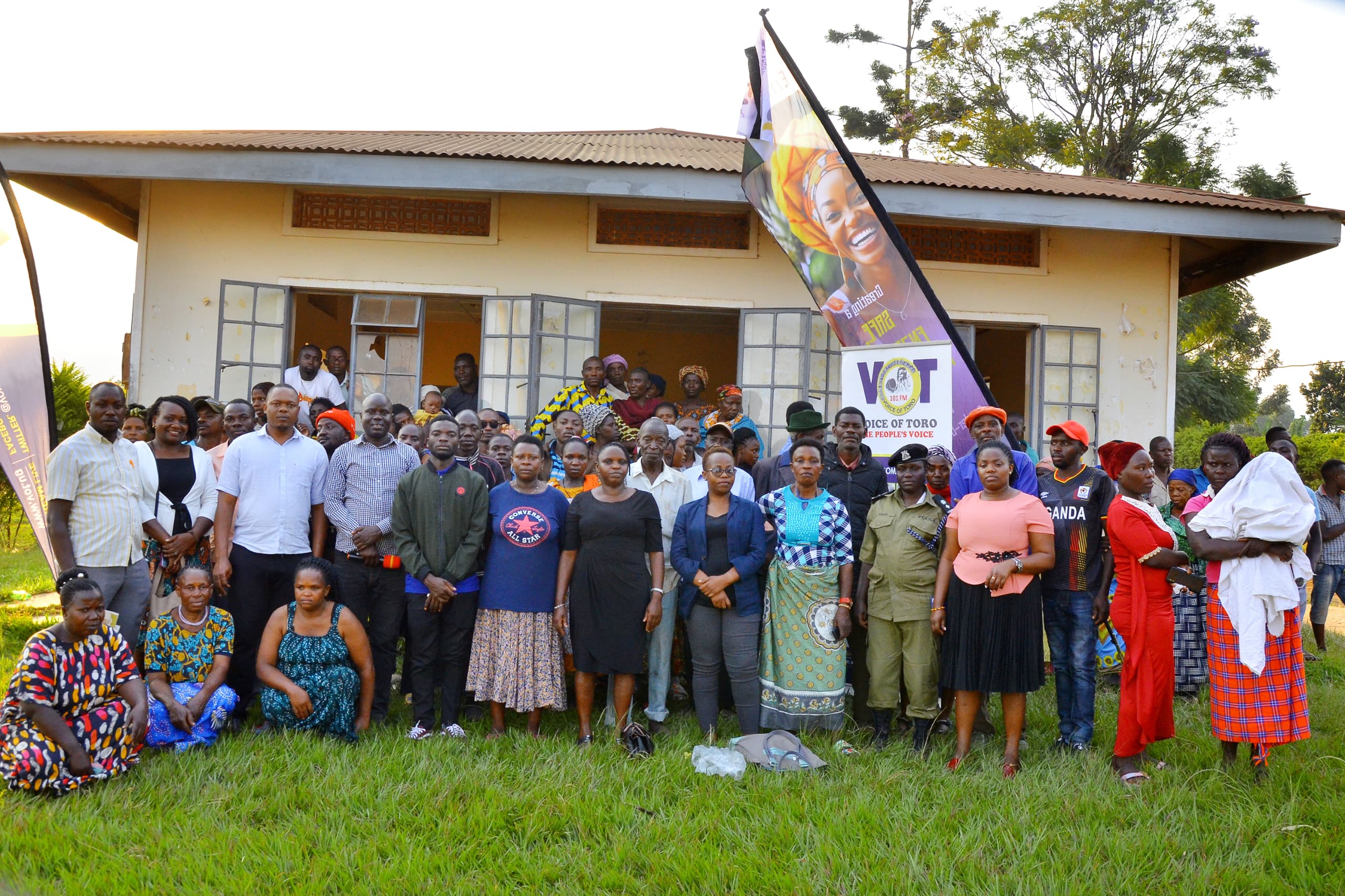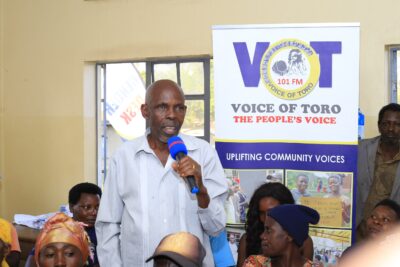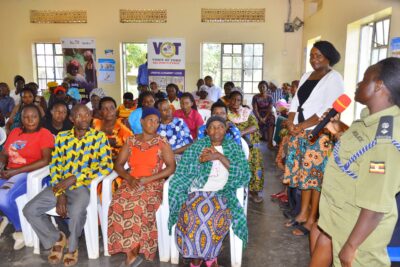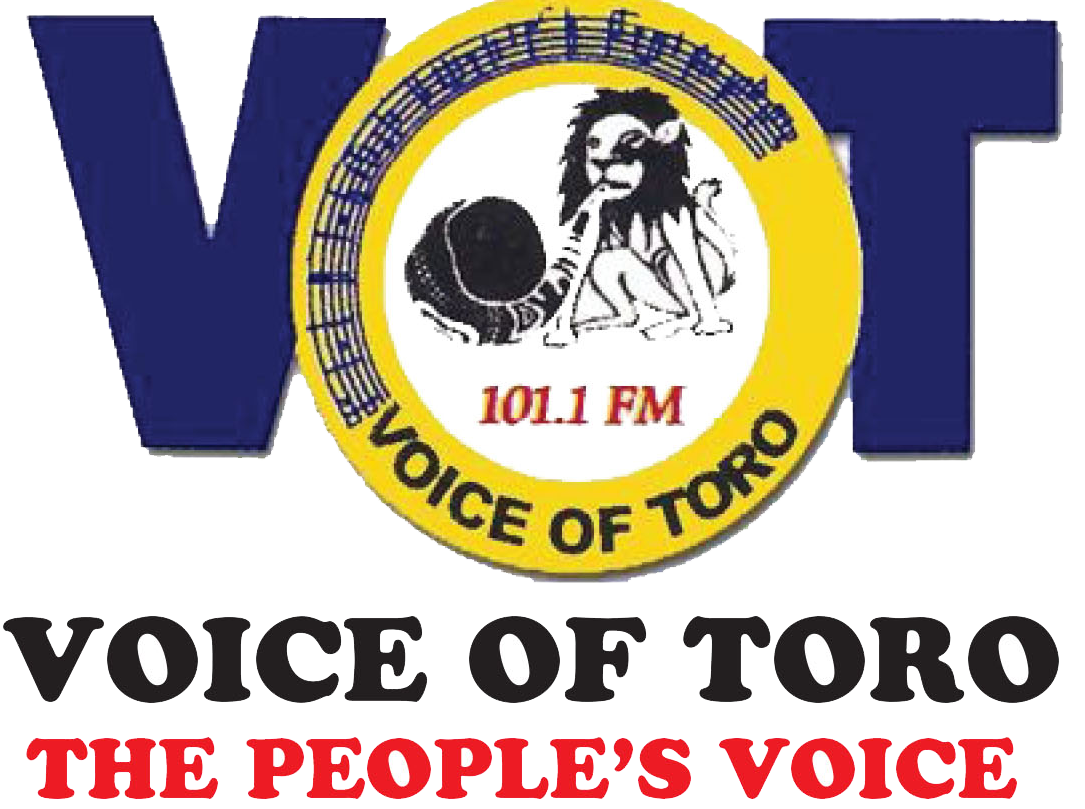
VOT Gender Desk leads the charge against gender-based violence
BY: POLITE MUSA.
In a world where gender-based violence critically affects families and society, the Voice of Toro (VOT) gender desk has taken the lead in addressing some of the root causes through its programming.

Through this initiative, it has earned gender desk a household name for its awareness efforts. Recently, a community dialogue organized by the VOT gender desk at Karago Main Hall in Fort Portal City, provided locals another opportunity to meet with duty bearers like Uganda police, City council authorities and civil society organizations, where many unanswered questions were tackled, and the public was given free legal knowledge.

Sp. Agness Angom, while speaking to community members during the dialogue
Police’s Perspective
At the baraza, attended by hundreds from the greater Bukuuku area, SP Agnes Angom, head of the Child and Family Protection Unit at Fort Portal Central Police Station, applauded VOT gender desk, for working closely with the police to solve many gender-related issues through its programming.
She noted that the gender desk has referred many cases to the police, allowing people to find solutions. Through their weekly program, “Her Story,” police have been able to educate and assist the public in addressing gender-based violence.
Media gender dialogues organized in many sub-counties across the district have greatly assisted us in community policing. People have been guided on where to report gender-based violence,” She said.
She also emphasized the importance of immediate reporting of defilement and rape cases, as early reporting helps forensic and crime intelligence teams collect crucial evidence.
She added, “Men seem to be very busy, maybe. They have forgotten how to entice a woman. What some of them do is to ‘jump in and jump out,’ yet by law, a woman must consent,” Angom added.
Civil Society Organizations’ Role
The gender desk has collaborated with several civil society organizations, including the Uganda Association of Women Lawyers (FIDA Uganda), to advocate for women’s rights and social justice, empower women, promote gender equality, and provide quality legal services.
Ms Naddunga Lenah, a FIDA official attached to the Tooro sub-region, appreciated the VOT gender desk for its grassroot community participatory approach to advancing Gender Equality.
“Through VOT’s community dialogues, we have managed to reach many and educate them on sexual harassment at work places, legally accepted land agreements, Inheritance and the content of a valid will, which are major factors behind gender-based and domestic violence, it was previously hard for people to know our existence, but through the VOT gender desk dialogues, we have interacted with many,” She said.
Empowering Local Leaders
Ms Annet Kasaija, a women leader in Mandako Ward, Fort Portal City, said over the past years it has been hard for her to handle some of the gender-based issues reported to her among men, women, and children.
“Now I have graduated. I have beyond basic knowledge on how best to handle such cases and where to guide my people to get help,” she stated.
Mr Patrick Ruranganwa, LC2 Mandako, applauded the VOT gender desk for enlightening locals on critical issues and suggested providing printouts to local leaders for reference on land-related and will cases.
The Importance of Gender Community dialogues.
Ms Betty Mujungu , Voice Of Toro’s Gender Desk team leader, explained that Barazas are critical in a way of allowing unprivileged locals to air their views extensively, unlike workshops or radio stations with limited time.
She said taking the radio to the community to get their views; it gives subject matter specialists enough time to engage with locals thoroughly.
“It’s within the community where domestic and gender-based violence is common. The best way to help people is to go to them. We take police and civil society organizations that deal with gender-related issues to listen and guide the public. This is our joy when we see people open up and speak to unjust situations and systems ,” she said.
Since the inception of Barazas, the gender desk in collaboration with the police and civil society organizations, the communities have been educated, supported, and received legal knowledge to tackle gender-related issues from the grassroots level.


